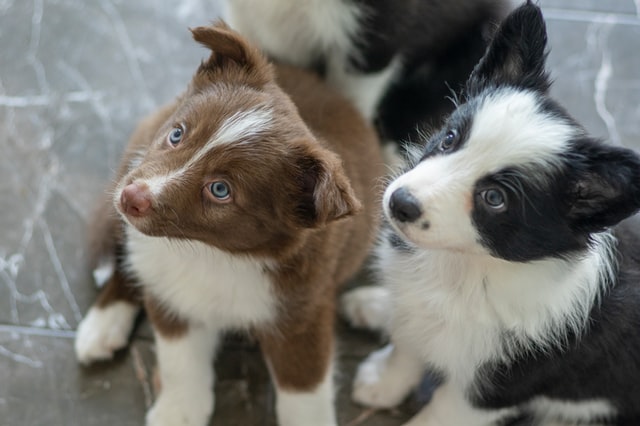Owning a dog can be a lot of work, so decide what dog personality is best for you. The right dog is one that fits into your household, rather than one that fits the household around the dog. This blog will help you understand how their personality is best suited to your family. We’ll also discuss how to pick the right dog.

- Different personality traits of dogs
- How do different dogs have different personalities?
- How to choose a dog’s characteristics suitable for you?
- How many types of dog personalities are there?
- How to identify a dog’s personality?
- Is your dog an Alpha or a Beta?
- What are the personality traits of a beta dog?
- What are the personality traits of an alpha dog?
- Why Are There Different Breeds of Dogs?
- How do dogs behave and how do they react to their environment?
- What is the personality type of dog that suits me best?
- How Are Dogs Like Humans?
Different personality traits of Dogs.
It is common knowledge that dogs and people are not the same. Dogs are not emotional creatures, whereas humans are. We experience emotions, and our faces reflect those emotions. However, dogs just lack that, making them an emotional wasteland. Dogs are more adept at following directions and picking up new tricks. Dogs are often said to be a man’s best friend, but they are also dog’s closest friend, so they ought to have some unique personality features.
Dog personalities come in many distinct varieties. Some canines are more independent than others, and vice versa. Some dogs are more relaxed than others, and vice versa. And while some dogs are more intuitive than others, some are more analytical. Each breed of dog has its own set of advantages and disadvantages. Additionally, a particular kind of owner is best suited for each sort of canine mentality.
How do different dogs have different personalities?
Dogs’ distinct personalities result from the fact that they were bred to fulfil particular roles, and man further moulded these features through selective breeding. Dogs were bred to do specific tasks, including herding, hunting, guarding, and serving as playmates. For instance, whereas Border Collies are independent and frequently operate alone, sheepdogs are social and always believe themselves to be a part of the flock. The German Shepherd and Alsatian breeds of dogs were developed for hunting and guarding. They were bred to be fiercely independent and suspicious of outsiders. The lap dog is an illustration of selective breeding. They are incredibly kind and laid-back. To be social, these dogs have undergone careful breeding.
Dogs enjoy interacting with us, and they enjoy seeing us. They were selectively bred for their temperament and disposition to make them wonderful companion dogs.
Numerous studies have demonstrated the distinct personalities of various breeds. According to studies, even within the same breed, dogs owned by different dog owners exhibit a variety of personalities. Additionally, how you treat your pet will affect this. Dogs with owners who are strong, stern, and constant will have personalities that are assertive and stubborn. Kind and outgoing personalities are traits that dogs with friendly and sympathetic owners will exhibit. The dog’s genetic makeup and the owner’s personality are difficult to distinguish from one another.
How to choose a dog Characteristics suitable to you?
A man’s best companion is a dog. Dogs are devoted creatures that make excellent companions. And we can learn a lot from them. Dogs can offer comfort, protection, loyalty, and companionship. We can feel secure around dogs. They pay attention well. They may give us a feeling of well-being. Unconditional love from a dog can provide us with great joy. However, not every dog is the same. Some canines are more suited to particular kinds of homes than others. Certain types of dogs are the best option for families with young children. Other canines are more suited to mature, fit singles who are active. When selecting one, you should consider your lifestyle and the personality of your dog. If you’re planning to select a dog for your home, consider the following factors:
How many types of dog personalities are there?
Dogs can be broadly categorised into two groups: companion dogs and working dogs. Working dogs are typically bred to assist people and are present in practically every nation on earth. The German Shepherd, Rottweiler, Labrador Retriever, Border Collie, and Doberman Pinscher are the most popular breeds of working dogs in the United States. Dogs who live with us are called “companions” and are treated as members of the family. The Shih Tzu, Pomeranian, Yorkshire Terrier, West Highland White Terrier, Pug, and Beagle are the most popular companion dog breeds in the USA. Small, medium, and giant dogs, as well as swift and slow dogs, are additional categories for dogs.
Dog personalities come in many distinct varieties. While some dogs are gregarious and extroverted, others are more quiet and timid. While some dogs are calm and relaxed, others are playful and active. And some canines fall somewhere in the middle. Your dog’s personality will probably be influenced by a variety of elements, such as genetics, early experiences, and socialisation.
How to Identify a Dog’s Personality?
Like people, each dog is an individual with a distinct personality. While some dogs are gregarious and extroverted, others are more quiet and timid. Like people, some dogs like being the only dog in the household, while others enjoy being among other dogs. So, how do you figure out what personality type your dog has?
Examining how your dog interacts with other dogs and humans might help you learn more about his personality. He is probably an extrovert if he feels at ease and confident when around other dogs. He is definitely an introvert if he is more reticent and prefers to hold back while meeting new people, dogs, or staying close to you. Consider your dog’s energy level as another way to gauge his personality. Is he constantly on the go, or does he choose a more laid-back? High-energy dogs are more likely to be excited and may struggle in quiet settings or with reserved owners.

Is your dog an Alpha or a Beta?
Alpha and beta dogs differ significantly from one another. Betas are the group’s followers, while alphas are the pack’s leaders. Accordingly, betas are more likely to be obedient and meek, whereas alphas are more likely to be violent and possessive. The social habits of the two breeds of dogs vary as well. Betas tend to be more gregarious, whilst alphas tend to be more autonomous.
What are the personality traits of a Beta Dog?
A personality type known as a Beta Dog harbours a strong desire to fit in with the group. The name for this personality type is really derived from a scientific word. In an animal hierarchy, the second place is referred to as “betas.” The Beta Dog will do all it takes to ensure that the pack survives when it must flee, since he doesn’t want to abandon his pack members. The Beta dog is quick to pick up new skills, think on his feet, and obey the Alpha dog’s directions. The Beta Dog has a very sociable demeanour and will make an effort to engage with others.
What are the personality traits of an Alpha Dog?
Alpha canines are incredibly self-assured and forceful. They always seek the spotlight. However, they are not haughty; rather, they are hospitable and sympathetic to all kinds of individuals. They prefer to take command of the group and are happiest while doing so. Additionally, they are fiercely protective of their group and their area; if someone questions their dominance, they will retaliate violently.
An alpha dog doesn’t display fear towards other dogs. It guards its master fiercely as well. It is a dog that always seeks to be in the spotlight and will rule over the other dogs. The dominant dog is always the first to eat, the first to emerge from its kennel, and the one who barks the loudest. The dominant dog in the pack will always be the first to eat, emerge from its crate, and bark the loudest. Even though the alpha dog is the pack leader, they are not always the biggest dogs.
Why Are There Different Breeds of Dogs?
There are numerous breeds of dogs, which are among the most popular pets worldwide. But why do dogs come in so many breeds?
This is due to a few factors. First, several dog breeds were created for various uses. While some varieties were created to hunt, others were designed to herd or defend you. Second, varied terrains and climatic conditions also contributed to the evolution of various dog breeds. For instance, canines with thick fur coats had a higher chance of surviving and thriving in colder areas.
There are hundreds of dog breeds available today, each with a distinctive set of traits.
How Dogs Behave and How They React to Their Environments?
Dogs live in packs and are social animals. Within the group, there is a hierarchy with an Alpha dog at the top. Dogs express themselves to one another through vocalisations and body language. They can see and hear clearly and utilise their keen sense of smell to distinguish between different canines. Dogs are able to pick up on and comprehend human language. They respond to their surroundings based on their experiences in the past, how they are feeling at the time, and what is going on around them.
How do Dogs React to Noise?
Different canines respond differently to sounds. While some people could be terrified by loud noises, others might be fascinated and wish to look into the cause of the noise. A dog that is accustomed to being around loud noises, like those created by fireworks, might not even respond. Dogs left inside a house alone during a storm may experience stress and anxiety due to the thunder and lightning.
What Responses Do Dogs Have to Earthquakes?
Dogs have a keen hearing sense and are more sensitive to earthquake vibrations than people are. They could begin to howl or bark, pace back and forth, act disturbed or restless, try to hide, or look for solace from their owners. Even trying to dig their way out, some dogs do.
How do dogs react when someone breaks in?
Dogs have a variety of responses to strangers. Some will bark, while others will flee. The intruder will likely be attacked by others. The easiest way to learn how your dog will respond is to invite a trustworthy guest into your home while you are away to observe the dog’s behaviour.
What Responses Do Dogs Have to Fire?
Dogs are incredibly interested animals, and they frequently want to inspect anything that piques their interest. Including fires in this. While some dogs could be terrified of fire, others might be captivated by it and want to approach as close to it as they can to see what’s happening. Keep a watch on your dog if they are interested in the fire and make sure they don’t come too close because they might easily get burned.
What Are Dogs’ Reactions to Storms?
Dogs typically dislike storms and may experience anxiety or fear when one is developing. Your dog may hide, tremble, pant, pace, or whine if they are unhappy during a storm. Your dog might attempt to flee the house or yard if he has a severe storm phobia. While fear of thunder and lightning in dogs is common, some canines experience a more severe condition known as thunderstorm phobia. If your dog is afraid of thunderstorms, he could exhibit signals of fear even when none are present.
How do Dogs React to Floods?
Dogs often exhibit one of two reactions when faced with flooding: either they become overly thrilled and attempt to play in the water, or they become frightened and withdraw. If your dog fits into the first group, it’s crucial to watch out for them and make sure they don’t drink too much water, as this might lead to dehydration. Try to create a safe environment where your dog may feel at ease and secure if they are afraid of the water.
What is the personality type of dog that suits me best?
There are many different dog breeds, and each one has a distinctive personality. How do you determine which breed of dog is best for you? Let’s talk about these 3 basic things that you should do to get an answer:
Taking a personality test is one way to determine which breed of dog best suits your personality. The Canine Good Citizen test, or CGC, is the most well-liked canine personality test. This test assesses a dog’s capacity for appropriate behaviour in a variety of settings and can provide some insight into the potential temperament of a breed.
Speaking with dog owners of the breed you’re interested in is another technique to determine which breed is best for you. You can find out if they believe the breed would be a good fit for your personality by asking them about their experiences with it.
Finally, keep in mind that it’s critical to give your dog lots of love and attention, regardless of breed.
How Dogs Are Like Humans?
Did you know that dogs and people have a lot in common? The same human feelings that people do, such as love, joy, fear, and grief, are also felt by dogs.
In many ways, dogs and humans are similar. One explanation is that they require companionship since they are social beings. They exhibit emotions as well as joy, sorrow, fear, and wrath. They are sociable animals that require companionship, exercise, and even share brain regions with humans. Dogs can be trained to perform tricks and to follow instructions. Some dogs even assist their owners with tasks like fetching the newspaper or herding lambs. Every dog is unique and has its own personality, much like people. One of their many unique qualities is that.
To Wrap Things Up!
There are many various kinds of canine personalities, but heredity and environment are the two factors that most strongly influence a dog’s personality. Puppies frequently have distinct personalities from birth, but they also grow to have distinctive personalities as they mature and are trained. Additionally, there are various personality kinds for dogs. While some dogs are independent and like their alone time, others prefer to be with people. While some dogs are devoted to their owners and can frequently be found by their side, others are independent and prefer to travel on their own. These are but a few examples of the various dog personalities that exist. Each dog is different, and they all have different personalities.
We hope you liked reading about the personality differences across dog breeds. Please leave any additional questions you may have regarding a particular breed’s temperament in the comments section below, and we will try our best to respond. We wish you a wonderful week!
Read more from our blog here...

